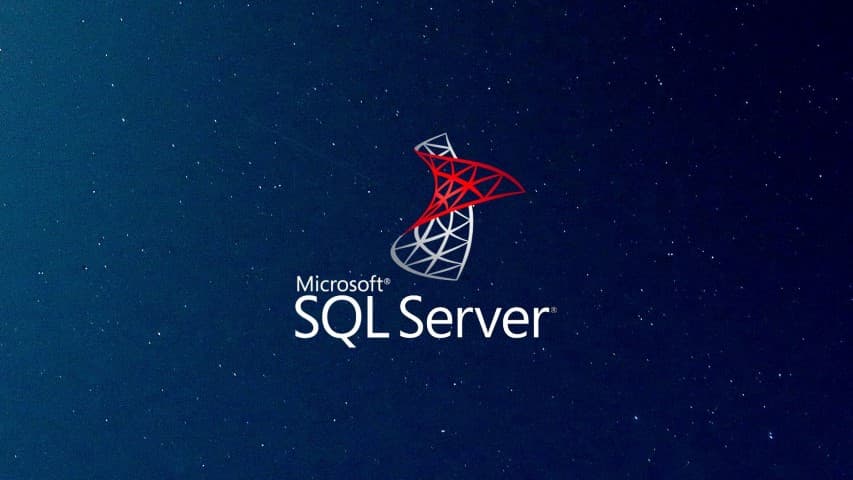Our Top
Service



Microsoft Power Platform: Empowering Businesses with Low-Code Solutions
In today's fast-paced digital era, organizations are constantly seeking ways to improve efficiency, drive innovation, and make data-driven decisions. Enter Microsoft Power Platform, a suite of low-code development tools aimed at empowering businesses to build custom solutions and unleash their full potential.
What is Microsoft Power Platform?
Microsoft Power Platform is a collection of cloud-based services that work seamlessly together to enable organizations to analyze data, automate processes, create custom applications, and build chatbots. It consists of four key components: Power BI, Power Apps, Power Automate, and Power Virtual Agents.
Power BI: The Power BI component allows businesses to transform data into rich visuals and interactive dashboards. With its intuitive data exploration capabilities and powerful analytics tools, organizations can gain valuable insights and make data-driven decisions. Power BI makes it easy to connect to various data sources, create visually compelling reports, and securely share them with stakeholders.
Power Apps: Power Apps empowers individuals in an organization to build custom business applications without prior coding knowledge. With a drag-and-drop interface and a wide range of pre-built templates and connectors, users can create custom apps for specific business needs. Whether it's a simple mobile app, a complex data-entry system, or a customer portal, Power Apps makes app development accessible to everyone.
Power Automate: Power Automate (formerly known as Microsoft Flow) enables businesses to automate repetitive tasks and streamline workflows. With a no-code approach, users can create automated workflows that connect various applications and services, eliminating manual processes and increasing productivity. From approvals and notifications to data synchronization and integration, Power Automate simplifies business processes and allows organizations to focus on what truly matters.
Power Virtual Agents: Power Virtual Agents allows organizations to build intelligent chatbots that can understand and respond to customer inquiries. Without any coding experience, businesses can create chatbots that provide personalized customer support, handle FAQs, and even automate common business tasks. With its natural language processing capabilities, Power Virtual Agents enhances the customer experience and reduces the burden on support teams.
Why Choose Microsoft Power Platform?
Low-Code Development: In today's fast-paced business environment, speed is vital. With Power Platform's low-code development approach, businesses can rapidly create custom solutions, reducing development time and costs compared to traditional development cycles.
Integration and Connectivity: Power Platform seamlessly integrates with other Microsoft products and popular third-party services, enabling businesses to leverage existing systems and data sources. This integration capability ensures that organizations can have a holistic view of their operations and make informed decisions based on unified data.
User-Friendly Interface: Power Platform's intuitive and user-friendly interface empowers non-technical users to create and customize applications, reports, workflows, and chatbots. This democratization of development allows organizations to tap into the creativity of their employees and drive innovation from within.
Security and Compliance: Microsoft's robust security measures and compliance standards are inherent in Power Platform. Organizations can rest assured that their data is protected and that they comply with industry regulations and requirements.
Scalability and Flexibility: Whether businesses are just starting or scaling their operations, Power Platform can grow and adapt with them. It is designed to handle both small-scale projects and enterprise-level solutions, offering flexibility to meet changing business needs.
The Future of Power Platform
As technology continues to evolve, Microsoft Power Platform evolves with it. Microsoft regularly releases updates and new features, ensuring that organizations have access to the latest tools and capabilities. With a growing community of developers and users, Power Platform has become a vibrant ecosystem that fosters collaboration, knowledge sharing, and innovation.
In conclusion, Microsoft Power Platform is revolutionizing the way businesses approach app development, data analysis, workflow automation, and customer engagement. By providing low-code solutions that empower users and foster collaboration, Power Platform is democratizing technology and putting the power of innovation in the hands of every employee. As organizations embrace digital transformation, Microsoft Power Platform stands ready to help them accelerate their journey towards success.
Microsoft Business Intelligence: Unleashing the Power of Data-Driven Decision Making
In today's data-driven world, businesses are constantly seeking ways to gain insights and make informed decisions. Microsoft Business Intelligence (BI) is a comprehensive suite of tools and technologies that empowers organizations to transform raw data into meaningful insights. With its powerful capabilities and user-friendly interface, Microsoft BI enables businesses to unlock the full potential of their data and drive success.
What is Microsoft Business Intelligence?
Microsoft Business Intelligence is a suite of tools and services that work together to transform data into actionable insights. It comprises various components, including Power BI, SQL Server Reporting Services (SSRS), SQL Server Analysis Services (SSAS), and SQL Server Integration Services (SSIS). Each component plays a unique role in the BI ecosystem, providing organizations with the tools they need to analyze, visualize, and share data.
Power BI: Power BI is the flagship component of Microsoft BI. It is a cloud-based business analytics service that allows users to connect to various data sources, create interactive reports and dashboards, and share insights with stakeholders. With its intuitive drag-and-drop interface and seamless integration with other Microsoft products, Power BI makes it easy for users to explore data, perform ad-hoc analysis, and make data-driven decisions.
SQL Server Reporting Services (SSRS): SSRS enables businesses to create, manage, and distribute paginated reports. These reports provide structured data in a tabular format, allowing users to analyze information and identify trends easily. SSRS supports a wide range of data sources, providing flexibility for businesses to report on their data effectively.
SQL Server Analysis Services (SSAS): SSAS brings advanced analytics capabilities to Microsoft BI. It offers two modes: Multidimensional Mode and Tabular Mode. Multidimensional Mode allows businesses to build OLAP (Online Analytical Processing) cubes for complex data analysis, while Tabular Mode provides in-memory analytics for faster querying and processing speed.
SQL Server Integration Services (SSIS): SSIS enables organizations to extract, transform, and load (ETL) data from different sources into a data warehouse or a data mart. It provides a graphical development environment for creating workflows that automate the movement and transformation of data, ensuring data quality and consistency.
Why Choose Microsoft Business Intelligence?
Seamless Integration:Microsoft BI seamlessly integrates with other Microsoft products, such as Office 365, Azure, and SQL Server, as well as popular third-party applications and services. This integration enables organizations to leverage their existing infrastructure and systems, eliminating data silos and providing a unified view of their operations.
User-Friendly Interface:Microsoft BI tools are designed with user experience in mind. With their intuitive interfaces and drag-and-drop functionality, users can easily explore, analyze, and visualize data without the need for extensive coding knowledge or technical expertise.
Scalability and Performance: Microsoft BI is highly scalable, capable of handling large datasets and accommodating growing business needs. Whether organizations are dealing with millions of records or expanding their BI capabilities, Microsoft BI can scale to meet their demands. Additionally, it offers robust performance optimization features to ensure queries and reports are executed efficiently.
Security and Governance: Microsoft takes security and governance seriously. Microsoft BI includes features such as role-based security, data encryption, and data loss prevention, ensuring that sensitive business information is protected. It also provides auditing and monitoring capabilities to track user access and data usage.
Vibrant Community and Support: Microsoft BI has a large and active community of users, developers, and experts who provide support, share best practices, and offer solutions to common challenges. This community-driven ecosystem fosters collaboration and empowers organizations to maximize the value of their BI investments.
The Future of Microsoft Business Intelligence
As technology advances and the volume of data grows exponentially, Microsoft continues to invest in enhancing its BI tools and services. With the integration of AI and machine learning capabilities, Microsoft BI is poised to offer even more advanced analytics and predictive insights. Moreover, Microsoft's commitment to cloud-based solutions ensures that organizations can benefit from the scalability, agility, and accessibility of a cloud-centric BI ecosystem.
In conclusion, Microsoft Business Intelligence is a powerful suite of tools that empowers organizations to analyze data, gain insights, and make data-driven decisions. By leveraging Microsoft BI, businesses can unlock the full potential of their data, uncover patterns and trends, and drive success in a competitive landscape. As organizations embrace the importance of business intelligence, Microsoft BI stands ready to provide the tools and technologies needed to thrive in the data-driven era.
Microsoft SQL Server Solutions
Overview
Welcome to the official website for Microsoft SQL Server! Here, you will find comprehensive information about Microsoft SQL Server, its features, benefits, and how it can revolutionize your data management.
What is Microsoft SQL Server?
Microsoft SQL Server is a powerful and scalable relational database management system (RDBMS) developed by Microsoft. It enables organizations to store, manage, and retrieve large quantities of data efficiently.
Key Features
Reliability: SQL Server ensures the reliability and availability of your data, protecting it from potential failures.
Scalability: SQL Server can handle the increasing demands of growing businesses and scale as your data grows.
Security: With robust security features, SQL Server protects your data from unauthorized access and ensures compliance with regulations.
Performance:SQL Server's advanced indexing and query optimization techniques guarantee fast and efficient data retrieval.
Integration:SQL Server seamlessly integrates with other Microsoft products and technologies, enabling smooth data interactions and application development.
Benefits of Microsoft SQL Server
Enhanced Productivity: SQL Server provides intuitive tools and a user-friendly interface, increasing productivity for developers and administrators.
Improved Performance: With query optimization and indexing, SQL Server delivers exceptional performance, enabling faster data processing.
Data Security: SQL Server offers advanced security features like data encryption and access controls, safeguarding your data against unauthorized access.
Cost Efficiency: SQL Server's cost-effective licensing options and efficient resource utilization lead to reduced costs.
Business Intelligence: SQL Server's built-in business intelligence tools help analyze and visualize data, enabling better decision-making and gaining insights into your business.
Use CasesEnterprise Applications: SQL Server is an ideal choice for mission-critical enterprise applications with high data volumes and complex requirements.
Data Warehousing: SQL Server's scalability and performance make it suitable for large-scale data warehousing projects.
Business Intelligence: SQL Server's business intelligence tools allow organizations to extract valuable insights from their data.
Web Applications: SQL Server seamlessly integrates with .NET and other Microsoft technologies, making it an excellent choice for web application development



